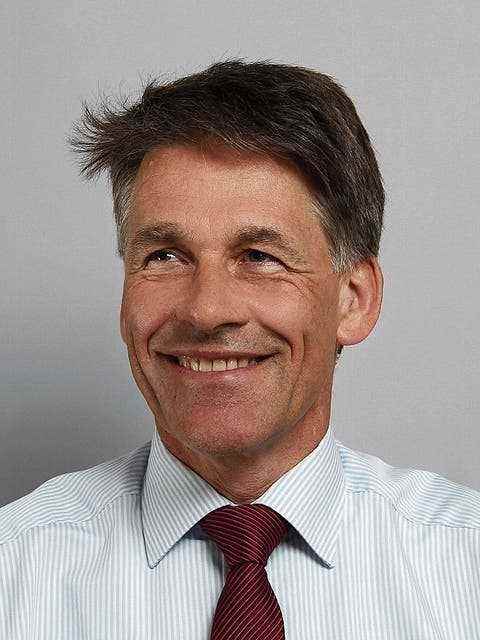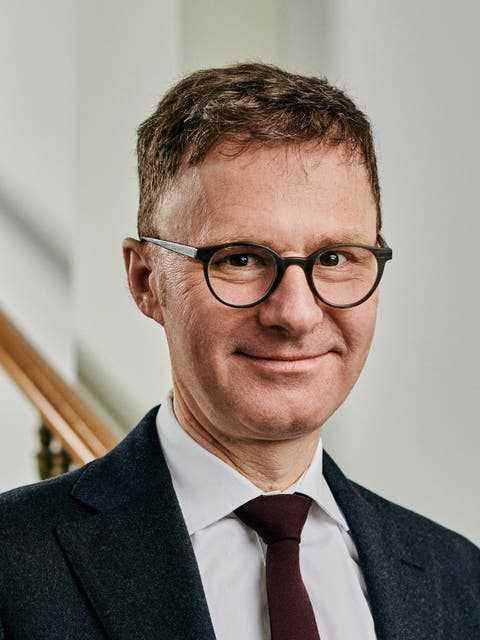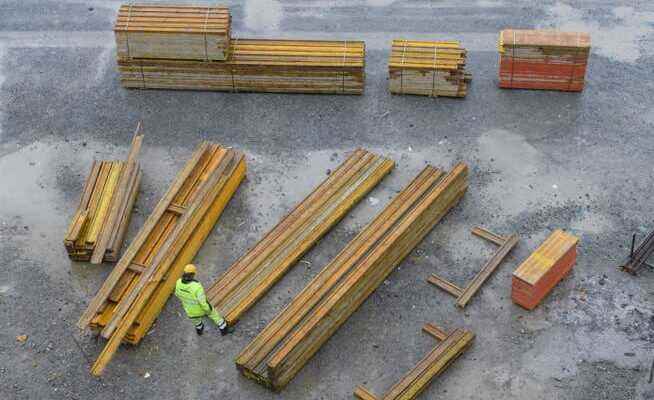Cumbersome procedures, a lack of sanctions and too frequent checks on foreign companies: the Swiss Federal Audit Office gives the enforcement system of the accompanying measures poor marks. This is not well received by the social partners and Seco.
Construction workers from foreign companies often have to endure multiple checks during a work assignment for no apparent reason.
Michel Huissoud, Director of the Swiss Federal Audit Office (SFAO), will retire in August. Before he leaves, his inspectors stir up a lot of dust again. The SFAO examined the implementation of the flanking measures for the free movement of persons with the EU (Flam). Wage protection was a sticking point when the framework agreement failed – and is also considered a tricky one when starting over. One point of criticism from the EU Commission is that the density of controls is disproportionate. Her suspicion: Switzerland is not only protecting the wages of local workers, but also Swiss companies from cheaper competition from abroad.

Michel Huissoud, Director of the Swiss Federal Audit Office.
The report published on Wednesday now provides something like a confirmation of this assumption. Because the financial controllers criticize that foreign companies and individual sectors such as the construction and hospitality industries are controlled far too often, measured against the risk that posted workers pose to the labor market. And they show that foreign companies or self-employed people who work in different cantons are often checked several times – even if they have never attracted negative attention before. According to the SFAO, however, Swiss companies with foreign workers are subject to controls much less frequently. In the year 2019 examined, domestic companies received only a quarter of the inspector visits of foreign companies.
Financial control gives the control apparatus of employers, trade unions and the public sector bad marks in other respects too. The federal government spends 15.3 million Swiss francs annually on controlling the wages of foreign workers and protecting against wage undercutting. However, from the SFAO’s point of view, this money is being used poorly: the procedures are inefficient and cumbersome and there is often a lack of opportunities to punish employers, they complain.
For example, companies that are active in sectors without a collective or standard employment contract do not have to fear individual sanctions if abusive undercutting of the local wages is determined. They can reject the wage adjustment proposed by the inspectors without being penalized. Only in the event of repeated wage dumping in a region can a collective labor contract be declared generally binding or a standard labor contract enacted that introduces a minimum wage for the branch or profession.
Unions: “Very aggressive demand”
With its fundamental criticism of the implementation of the accompanying measures for the free movement of persons, the SFAO caused great irritation among the social partners and the State Secretariat for Economic Affairs (Seco). The trade unions, for example, are angry: “We would have shrugged our shoulders at the report if it hadn’t contained the very aggressive demand that the level of control at foreign companies had to be lowered. This lacks any basis, »says Daniel Lampart from the Swiss Federation of Trade Unions.

Daniel Lampart, Chief Economist
of the Swiss Federation of Trade Unions.
He points out that the number of controls has already been significantly reduced in recent years: Today, only every third foreign company is checked. “All enforcement agencies agree that this regime is very practicable,” says Lampart. It is true that there can be multiple controls in the different cantons. However, this is due to the fact that different wage requirements apply in each canton. The legislator intended the control system to function decentrally.
Lampart also finds that improvements to the control system are needed. He says: “Swiss companies that employ foreign workers are checked far too seldom, in some cantons only every hundred years.” It is also regularly criticized that undercutting wages by fallible companies in many cases has no legal consequences. The bottom line, however, is that the decentralized system with the controlling players in the cantons has proven its worth. “We have succeeded in defending the domestic wage level and preventing wage pressure,” says Lampart.
The Swiss Employers’ Association is also irritated. “In its report, the SFAO focuses solely on the costs of implementation, but ignores the political context in which the Flam and its instruments were designed,” says director Roland Müller. However, the legislature deliberately chose a decentralized implementation that best takes regional and industry-specific circumstances into account. This was not done primarily because of cost considerations, but in the belief that the freedom of movement of people would be accepted.

Roland Müller, Director of the Swiss Employers’ Association.
Müller does not accept the criticism that foreign companies are controlled too often. Before the introduction of the free movement of persons and the accompanying measures, the foreign workers were only checked in advance. There was no guarantee that Swiss wage and working conditions would be effectively complied with. Now, however, the controls are risk-based and based on a comprehensive labor market observation that includes all sectors. That is probably complex, but still correct: “If the companies have to assume that there are controls, they also comply with the working conditions,” says Müller.
He also contradicts the criticism of the financial control that foreign employers are controlled much more thoroughly than Swiss companies. The latter would be subject to additional controls, for example in the areas of undeclared work, health and safety. The SFAO also omits that.
control system in question
Meanwhile, harsh criticism of the report also comes from the State Secretariat for Economic Affairs (Seco), which has a supervisory function in the implementation of the Flam. In a statement, the office writes that the audit assessments go beyond the existing framework and call into question the current system. The Seco also refuses to follow most of the recommendations formulated by the SFAO.
This applies in particular to the demand for a reduction in controls for foreign companies and the self-employed. It is believed that the appropriate proportion of controls cannot be determined on the basis of financial efficiency, the office writes. The high wage differentials between Switzerland and the EU countries and the high rate of violations continue to justify the current density of controls.
Whether the SFAO report will nevertheless have political consequences remains to be seen. In the past, parliamentarians took over the demands of financial control in advances. Meanwhile, one thing is clear: if Michel Huissoud retires in August, not a few people in Bern should be relieved.
